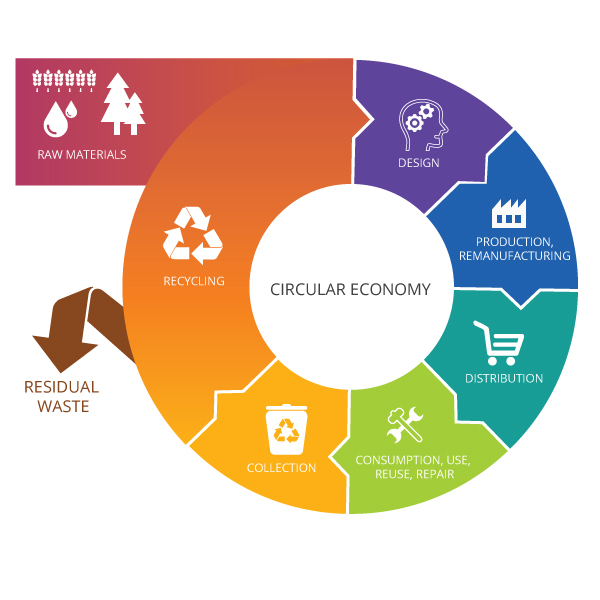The average European consumes 14 tonnes of raw materials and generates five tonnes of waste a year. These figures look alarming considering our resources are limited, but there might be a solution. Many products and materials can be reused or repaired, thus reducing waste. On Monday MEPs debate a report that calls on the European Commission to put forward an ambitious proposal to facilitate a transition towards a circular economy, where products are designed in order to facilitate reuse.
The traditional economy is based on take, make, consumer throw away, but in the circular economy the life cycle of products is extended. This could be for example due to improved durability, more efficient waste management or a better design that makes it easier to repair, reuse or remanufacture old products. However, it could also involve new business models based on leasing, sharing or selling pre-owned products.
The report being discussed on Monday and voted on Wednesday calls for a binding target to increase resource efficiency in the EU by 30% by 2030 compared with last year. This would boost the EU’s gross domestic product by nearly 1% and create an additional two million jobs, according to estimates by the Commission.
Report author Sirpa Pietikäinen, a Finnish member of the EPP group, said in order to move towards a sustainable economy both regulatory and economic changes as well as social, educational changes would be needed.


